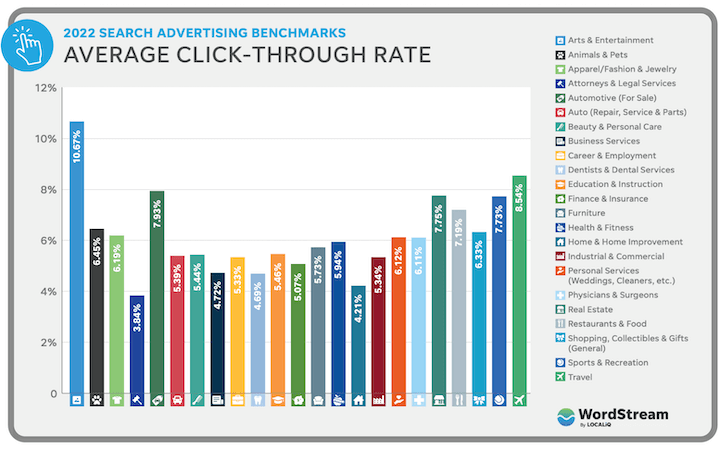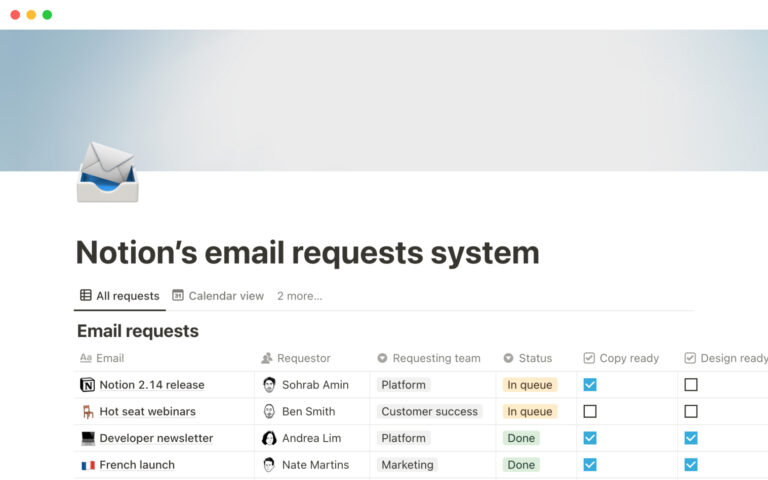Rich Dad, Poor Dad is a bestselling personal finance book written by Robert Kiyosaki. It tells the story of Kiyosaki’s two fathers – his real father, who was highly educated but struggled financially, and his best friend’s father, who was a high school dropout but became a successful entrepreneur. The book emphasizes the importance of financial education and challenges traditional beliefs about money and wealth. In today’s society, where financial literacy is often overlooked, understanding the principles outlined in Rich Dad, Poor Dad can be life-changing.
Financial education is crucial for individuals to achieve financial success and independence. Unfortunately, traditional education systems do not prioritize teaching financial literacy. Many people graduate from school without understanding basic concepts such as budgeting, investing, and building wealth. This lack of knowledge can lead to poor financial decisions and a lifetime of financial struggle. By educating ourselves about money and how it works, we can take control of our financial future and create a life of abundance.
Understanding the Mindset of the Rich and the Poor
One of the key lessons in Rich Dad, Poor Dad is the difference in mindset between the rich and the poor. The poor tend to have a scarcity mindset, believing that there is not enough money to go around and that they must work hard for every dollar they earn. On the other hand, the rich have an abundance mindset, believing that there are unlimited opportunities to create wealth and that money can work for them.
This difference in mindset has a profound impact on an individual’s financial success. Those with a scarcity mindset often find themselves stuck in a cycle of living paycheck to paycheck, constantly struggling to make ends meet. They may be afraid to take risks or invest their money because they are focused on immediate needs and lack the belief that they can create wealth.
In contrast, those with an abundance mindset are more likely to take calculated risks and invest their money wisely. They understand that wealth is created through assets and passive income, and they are willing to put in the effort to build a strong financial foundation. By adopting an abundance mindset, individuals can shift their focus from scarcity to abundance and open themselves up to a world of financial opportunities.
The Importance of Financial Education for Building Wealth
Traditional education systems are designed to teach us how to become employees, not entrepreneurs or investors. We are taught to get good grades, go to college, and find a stable job with a steady paycheck. While this may provide some level of financial security, it does not teach us how to build wealth or achieve financial independence.
Financial education is essential for building wealth because it provides the knowledge and skills necessary to make informed financial decisions. It teaches us how to budget, save, invest, and manage our money effectively. Without this knowledge, we are at the mercy of others who may not have our best interests at heart.
The benefits of financial education are numerous. It empowers individuals to take control of their financial future and make decisions that align with their goals and values. It helps them understand the risks and rewards associated with different investment opportunities. It also teaches them how to protect their assets and minimize their tax liabilities. By investing in their financial education, individuals can build a solid foundation for long-term wealth creation.
The Difference Between Assets and Liabilities
| Assets | Liabilities |
|---|---|
| Owned property | Debt owed to creditors |
| Investments | Unpaid bills |
| Cash and cash equivalents | Loans from banks |
| Accounts receivable | Taxes owed |
| Inventory | Salaries and wages owed |
One of the key concepts in Rich Dad, Poor Dad is the difference between assets and liabilities. According to Kiyosaki, an asset is something that puts money in your pocket, while a liability is something that takes money out of your pocket.
Assets can include things like real estate, stocks, bonds, businesses, and intellectual property. These are investments that generate income or appreciate in value over time. Liabilities, on the other hand, include things like mortgages, car loans, credit card debt, and other forms of consumer debt. These are expenses that drain your financial resources and do not provide a return on investment.
Understanding the difference between assets and liabilities is crucial for building wealth. Many people mistakenly believe that their primary residence is an asset, when in reality, it is often a liability. This is because it requires ongoing expenses such as mortgage payments, property taxes, and maintenance costs. True assets, on the other hand, generate income or appreciate in value over time, helping to build wealth.
By focusing on acquiring assets and minimizing liabilities, individuals can build a strong financial foundation and create long-term wealth. This requires making smart investment decisions and being mindful of how money is being spent. By prioritizing assets over liabilities, individuals can shift their financial trajectory and achieve financial independence.
The Power of Passive Income and How to Create It
Passive income is another key concept discussed in Rich Dad, Poor Dad. Passive income is income that is earned with little to no effort on the part of the individual. It is money that continues to flow in even when you are not actively working.
There are several ways to create passive income. One common method is through real estate investing. By purchasing rental properties, individuals can earn rental income each month without having to actively manage the properties. Another way to generate passive income is through dividend-paying stocks or bonds. These investments pay out regular dividends or interest payments to investors.
Creating passive income requires an initial investment of time and money. It may involve acquiring assets such as rental properties or dividend-paying stocks. However, once the initial investment is made, passive income can provide a steady stream of cash flow that can be used to cover expenses or reinvest for further wealth creation.
Overcoming Fear and Taking Calculated Risks

Fear is one of the biggest obstacles to financial success. Many people are afraid to take risks or step outside of their comfort zones because they fear failure or losing money. However, as Kiyosaki emphasizes in Rich Dad, Poor Dad, taking calculated risks is essential for building wealth.
Taking calculated risks means weighing the potential rewards against the potential risks and making an informed decision. It involves doing thorough research, seeking advice from experts, and being willing to learn from both successes and failures. By taking calculated risks, individuals can open themselves up to new opportunities and potentially achieve greater financial success.
Overcoming fear requires a shift in mindset. It requires recognizing that failure is not the end of the world, but rather an opportunity to learn and grow. It also requires developing a strong belief in oneself and one’s ability to overcome challenges. By facing fear head-on and taking calculated risks, individuals can break free from the limitations that hold them back and create a life of financial abundance.
The Role of Entrepreneurship in Creating Wealth
Entrepreneurship plays a crucial role in creating wealth. While traditional employment can provide a steady paycheck, it often comes with limitations such as a fixed salary and limited growth opportunities. Entrepreneurship, on the other hand, offers unlimited potential for income and growth.
One of the advantages of entrepreneurship is the ability to create multiple streams of income. By starting a business, individuals can generate income from their products or services, as well as potentially earn passive income through investments or partnerships. This diversification of income sources can provide greater financial stability and security.
Entrepreneurship also allows individuals to have more control over their time and their financial future. They are not limited by the constraints of a traditional job and can set their own schedule and priorities. They have the freedom to pursue their passions and create a business that aligns with their values.
Starting a successful business requires careful planning, research, and execution. It involves identifying a market need, developing a unique value proposition, and implementing effective marketing strategies. It also requires perseverance and a willingness to adapt to changing market conditions. By embracing entrepreneurship, individuals can create their own path to financial success and build a legacy for future generations.
The Impact of Taxes on Wealth Creation
Taxes play a significant role in wealth creation. Understanding how taxes work and implementing strategies to minimize tax liabilities can have a significant impact on an individual’s financial success.
Taxes can eat into a significant portion of an individual’s income and investment returns. By minimizing tax liabilities, individuals can keep more of their hard-earned money and reinvest it for further wealth creation. This can be done through various strategies such as taking advantage of tax deductions and credits, utilizing tax-advantaged retirement accounts, and structuring investments in a tax-efficient manner.
It is important to note that minimizing taxes should be done within the boundaries of the law. Engaging in illegal or unethical tax practices can lead to severe consequences, including fines and legal action. It is advisable to consult with a qualified tax professional or financial advisor to ensure that you are taking advantage of all available tax-saving opportunities while remaining compliant with the law.
The Importance of Surrounding Yourself with Successful People
The people we surround ourselves with have a significant impact on our mindset, beliefs, and ultimately, our success. Surrounding ourselves with successful people can inspire us, challenge us, and provide valuable insights and guidance on our journey to financial success.
Successful people often have a different mindset and approach to life than those who are struggling financially. They understand the principles of wealth creation and have firsthand experience in building successful businesses or investments. By spending time with successful people, we can learn from their experiences, gain new perspectives, and expand our own knowledge and skills.
Finding and connecting with successful people can be done through various avenues. Attending networking events, joining industry associations, or participating in online communities are all great ways to meet like-minded individuals who are on a similar path to financial success. It is important to be proactive in seeking out these opportunities and being open to building relationships with successful people.
Applying the Principles of Rich Dad, Poor Dad in Your Own Life
The principles outlined in Rich Dad, Poor Dad are not just theoretical concepts – they are actionable steps that can be applied in our own lives. To apply these principles, it is important to take action and make a commitment to financial education and personal growth.
One of the first steps is to educate yourself about money and how it works. This can be done through reading books, attending seminars or workshops, or taking online courses. By investing in your financial education, you can gain the knowledge and skills necessary to make informed financial decisions and build wealth.
Another important step is to assess your current financial situation and identify areas for improvement. This may involve creating a budget, paying off debt, or developing an investment plan. By taking a proactive approach to managing your finances, you can start building a solid foundation for long-term wealth creation.
It is also important to set clear financial goals and develop a plan to achieve them. This may involve creating a timeline, breaking down your goals into smaller milestones, and regularly reviewing and adjusting your plan as needed. By setting goals and taking consistent action towards achieving them, you can stay focused and motivated on your journey to financial success.
In conclusion, Rich Dad, Poor Dad provides valuable insights into the mindset and principles of the rich. By understanding these concepts and applying them in our own lives, we can take control of our financial future and create a life of abundance. Financial education is crucial for building wealth, as it provides the knowledge and skills necessary to make informed financial decisions. By understanding the difference between assets and liabilities, creating passive income streams, overcoming fear, embracing entrepreneurship, minimizing taxes, surrounding ourselves with successful people, and taking action towards our financial goals, we can achieve financial independence and create a legacy for future generations. It is never too late to start on the path to financial success – the key is to take action and commit to lifelong learning and growth.
FAQs
What is Rich Dad, Poor Dad?
Rich Dad, Poor Dad is a book written by Robert Kiyosaki that discusses personal finance and investing.
Is Rich Dad, Poor Dad a self-help book?
Yes, Rich Dad, Poor Dad is considered a self-help book as it provides guidance and advice on personal finance and investing.
What topics are covered in Rich Dad, Poor Dad?
Rich Dad, Poor Dad covers topics such as financial literacy, investing, real estate, and entrepreneurship.
What is the main message of Rich Dad, Poor Dad?
The main message of Rich Dad, Poor Dad is to encourage readers to think differently about money and to take control of their financial future through investing and entrepreneurship.
Has Rich Dad, Poor Dad been successful?
Yes, Rich Dad, Poor Dad has been a very successful book, selling over 32 million copies worldwide and being translated into 51 languages.
Are there any criticisms of Rich Dad, Poor Dad?
Yes, there have been criticisms of Rich Dad, Poor Dad, particularly regarding the accuracy of some of the information presented in the book and the author’s qualifications to give financial advice.





